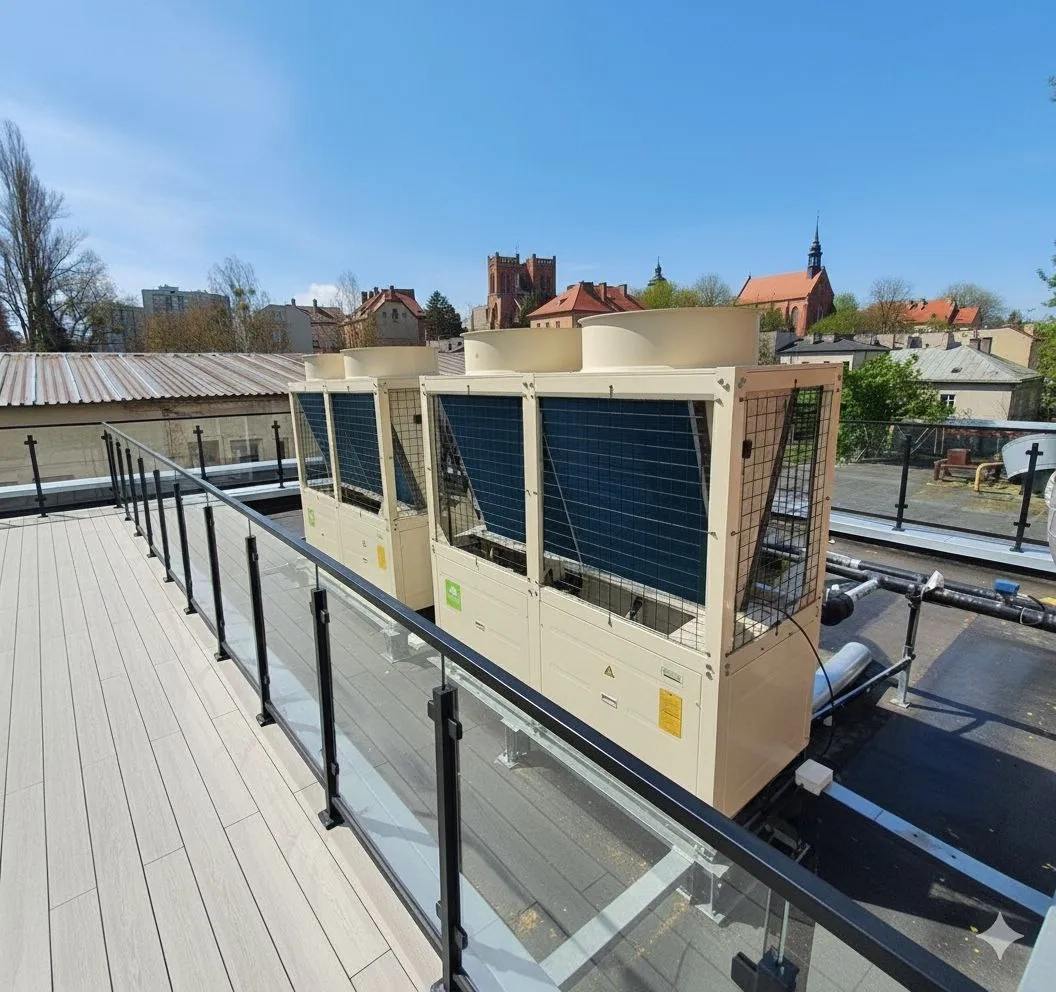
Imagine this: you own a 100–150 room hotel in London or Manchester. Your job is to deliver year-round guest comfort, whatever the weather. That means reliable heating in winter and 24/7 hot water, and in summer — efficient cooling. At the same time, you need to keep energy costs under control, as they make up a significant share of operating expenses.
Traditional options raise doubts. Gas boilers? Gas prices are volatile and operating costs keep rising. Electric boilers? Even more expensive. One large heat pump? The risk of a total shutdown if it fails is unacceptable for a hotel.
So the key question is: how do you design a hotel heating system that is reliable, scalable and economical?
TL;DR: Mycond MCU-YHE modular heat pumps are a solution for hotels from 50 to 500+ rooms. Each unit (70/150/500 kW) works autonomously but links into a single system of up to 16 modules (3,680 kW total). Benefits: N+1 redundancy (one unit in reserve), COP 3.42–3.65 reduces heating costs by 65–75% versus gas, phased investment, operation down to -26°C thanks to EVI technology. Payback 3–5 years.
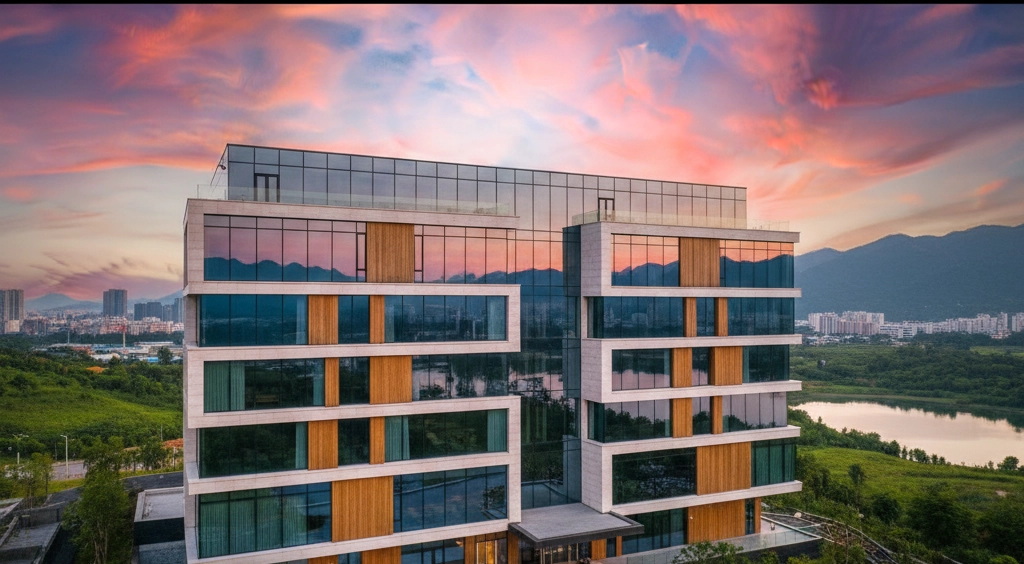
Why hotels choose modular heat pumps: 4 key reasons
Reason 1: Variable load throughout the year
The hotel business is seasonal. In the shoulder seasons occupancy is often only 30–40%, in peak season 80–95%, and during holiday periods it can reach 100%. Accordingly, the demand for heating and domestic hot water can vary by a factor of 2–3 over the year.
One large heat pump in this situation operates very inefficiently. At partial load its coefficient of performance (COP) drops markedly, increasing operating costs. A modular system, on the other hand, only switches on the required number of units: for example, 2 modules at 40% occupancy, 5 modules at 100% occupancy.
The Mycond MCU-YHE series maintains a high COP of 3.42–3.65 even at minimal load, delivering stable electricity savings throughout the year.
Reason 2: Uninterrupted operation is critical
For a hotel, a shutdown of heating or hot water is catastrophic. Guests expect comfort 24/7/365, and dissatisfied customers leave negative reviews that can significantly affect the property’s reputation.
If a single powerful heat pump is installed and it breaks down, the entire hotel is left without heating. The modular MCU-YHE system follows the N+1 principle: even if one unit fails, the rest continue to run.
Consider an example: a hotel requires 400 kW of heat output. We install 3 MCU140YHE units (450 kW in total) plus one additional unit in reserve. Even if one unit fails, 300 kW (75% of capacity) remains available — enough for the hotel’s basic operation until repairs are completed.
Reason 3: Phased investment and scalability
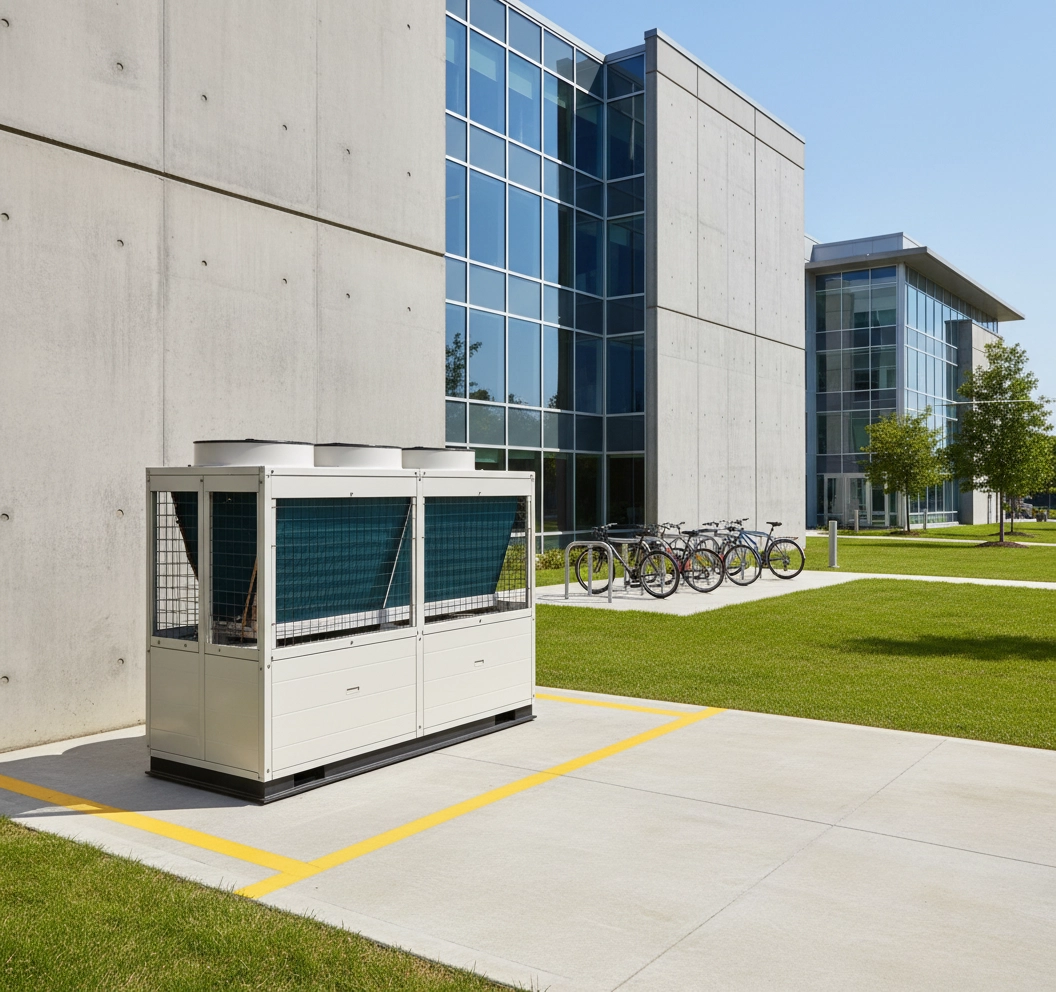
Hotels often expand: new buildings are added, as well as spas and pools. With a modular system you don’t need to invest upfront in the maximum capacity that might only be needed in a few years’ time.
For example, at the initial stage you can install 2 MCU140YHE modules (300 kW) for the main building. Two years later, when the hotel expands, you can add 1–2 more modules without dismantling the existing system. This reduces initial capital expenditure by 30–40%, improving the project’s financial metrics.
The Mycond MCU-YHE system supports cascade connection of up to 16 units with a total capacity of up to 3,680 kW — sufficient even for the largest hotel complexes in London or Edinburgh.
Reason 4: Reversibility — heating in winter + cooling in summer
MCU-YHE heat pumps are reversible chillers that can operate in both heating and cooling modes. In summer, the same units that provide heating in winter deliver cooling to rooms, restaurants and conference halls via fan coils.
As a result, the hotel gets a single system for year-round comfort. Instead of separate boiler plant and air conditioning — one set of equipment with high seasonal energy efficiency (SEER/SCOP). This provides 25–35% savings on capital expenditure.
In cooling mode, Mycond MCU-YHE modular heat pumps deliver a high EER of 3.2–3.42, significantly reducing air conditioning costs compared with traditional solutions.
How to size modular heat pumps for a hotel: a step-by-step guide
Step 1: Calculate the hotel’s baseline heat loss
The first step is to determine the building’s baseline heat loss. Use the following typical coefficients:
- Guest rooms: 80–100 W/m² for standard hotels with good insulation, 100–120 W/m² for hotels with older insulation
- Public areas (restaurant, lobby, conference halls): 90–110 W/m² (higher figures due to constant air exchange and large windows)
Let’s take an example of a hotel in Birmingham with 120 rooms:
120 rooms × 25 m²/room = 3,000 m²
Public areas: 800 m²
Total area: 3,800 m²
Average specific heat load: 95 W/m²
Baseline load: 3,800 m² × 95 W/m² = 361 kW
Step 2: Add the domestic hot water (DHW) load
Hotels consume significant volumes of hot water: showers, baths, pool (if any), laundry, kitchen. To calculate the DHW load, consider:
- Typical consumption: 80–120 l/day per room at 55°C
- The DHW load is 20–30% of the heating load for hotels without a pool, 30–40% with a pool
For our example: 361 kW × 1.25 = 451 kW total load (heating + DHW)
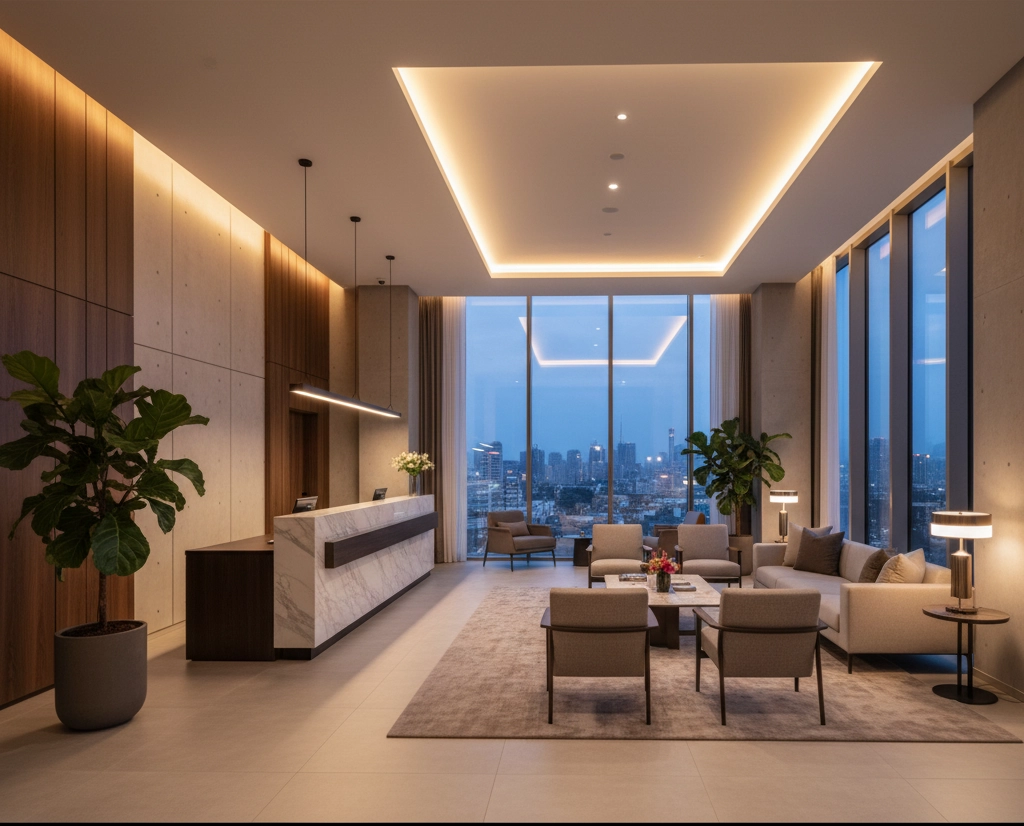
Step 3: Redundancy and peak load factors
At the design stage, you need to account for additional factors:
- Add 15–20% for cold snaps (when the outdoor temperature drops to the design -20°C / -25°C)
- N+1 redundancy: one additional module in reserve for uninterrupted operation
Continuing our example:
Final capacity including peak loads: 451 kW × 1.2 = 541 kW
Optimal solution:
4× MCU140YHE (600 kW total) or 2× MCU140YHE + 1× MCU500YHE (800 kW with high reserve)
Both options provide sufficient capacity and redundancy; the choice depends on budget and the hotel’s expansion plans.
Step 4: Recommended configurations for different hotels
Based on the calculations, the following typical configurations can be proposed for hotels of different sizes:
- Small hotel (50–75 rooms): 2–3× MCU066YHE (140–210 kW) or 1–2× MCU140YHE (150–300 kW)
- Medium hotel (75–150 rooms): 3–4× MCU140YHE (450–600 kW) or 1× MCU500YHE + 1× MCU140YHE (650 kW)
- Large hotel (150–300 rooms): 1× MCU500YHE + 2–3× MCU140YHE (800–950 kW) or 2× MCU500YHE (1,000 kW)
- Hotel complex (300+ rooms): 3–4× MCU500YHE (1,500–2,000 kW) with the option to expand to 8 modules
Each of these configurations provides a sufficient level of redundancy and flexibility as the load varies.
Technical features of Mycond MCU-YHE, important for hotel complexes
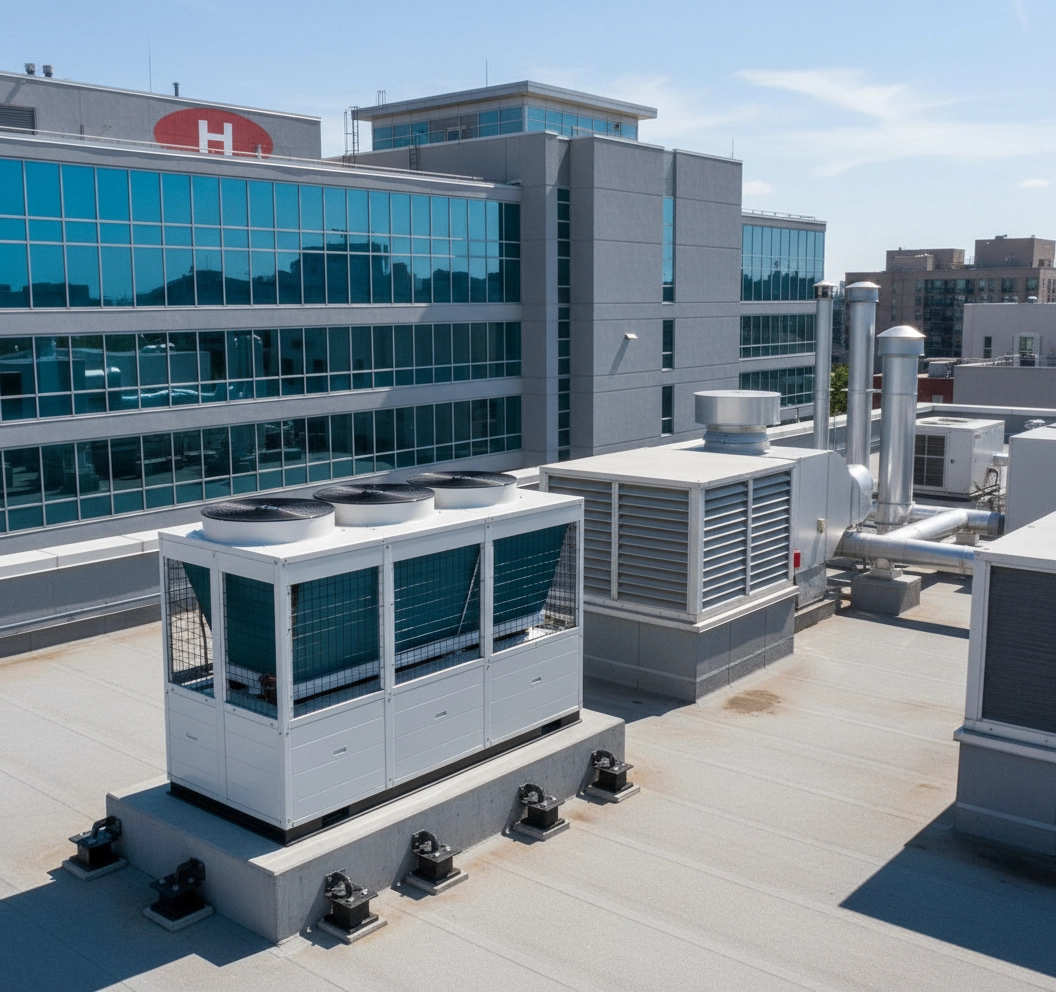
When choosing a heat pump for a hotel, it’s important to consider specific technical characteristics:
- EVI technology: Emerson/Danfoss scroll compressors with vapour injection (EVI) ensure stable operation down to -26°C without additional heat sources — ideal for the UK climate.
- Shell-and-tube heat exchanger: Provides high heat transfer efficiency and resistance to freezing.
- Refrigerant R410A: Environmentally safe, ensures high COP and EER.
- Cascade control system: Automatically distributes the load among all modules to achieve maximum efficiency.
- Built-in hydronic module: Simplifies installation and saves plant room space.
Conclusion: the benefits of modular heat pumps for the hotel business
Implementing Mycond MCU-YHE modular heat pumps for hotel heating and cooling is a strategic decision that delivers:
- 65–75% reduction in heating costs compared with gas boilers thanks to a high COP of 3.42–3.65
- Uninterrupted operation thanks to N+1 redundancy
- Flexibility and scalability as the hotel expands
- A single solution for heating and air conditioning
- Stable operation even at low temperatures down to -26°C
- Payback period of 3–5 years depending on energy tariffs
Given rising prices for traditional energy carriers and tightening environmental requirements in the UK, modular heat pumps are not just a cost-effective alternative, but a necessity for a modern, energy-efficient hotel business.
Contact us for a free heating system calculation based on Mycond MCU-YHE modular heat pumps tailored to your hotel in London, Birmingham, Manchester or any other UK city.